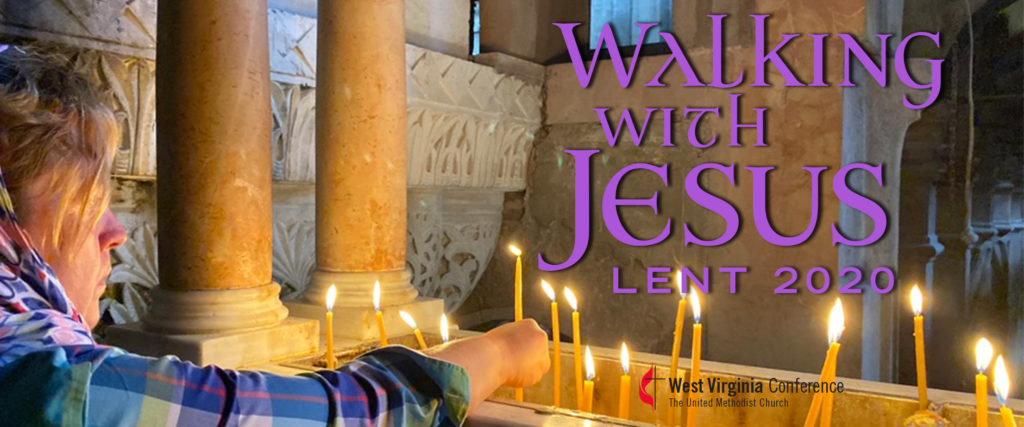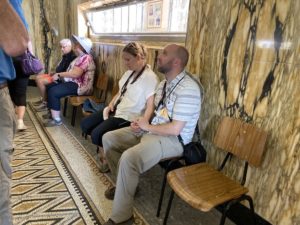
Ash Wednesday emphasizes a dual encounter: we confront our own mortality and confess our sin before God within the community of faith as we focus on the dual themes of sin and death in the light of God's redeeming love in Jesus Christ.
The lectionary readings for Ash Wednesday are: Joel 2:1-2, 12-17; Psalm 51:1–17 (UMH 785);
2 Cor 5:20b-6:10; Matthew 6:1-6, 16–21
Rev. Teresa Deane
Johnson Memorial UMC
Western District
This is a day of transitions. It’s Ash Wednesday, so we move as the Church from the season of Epiphany to Lent.
Last fall, on our “Walking With Jesus” pilgrimage to the Holy Land, we moved from the desert and wilderness areas near the Dead Sea to the lush shores of the Sea of Galilee. In Matthew’s gospel, chapters five through seven mark a kind of transition, too, as Jesus’ “Sermon on the Mount” beside those same shores is the first and longest of the five discourses or sermons of Jesus around which Matthew structures his gospel.
 The day we visited this site was possibly my favorite of the journey. We began with a boat ride on the Sea of Galilee, and then took a bus to the Mount of the Beatitudes.
The day we visited this site was possibly my favorite of the journey. We began with a boat ride on the Sea of Galilee, and then took a bus to the Mount of the Beatitudes.
The hills roll down toward the water, making a natural amphitheater, and it’s easy to imagine Jesus there, gathering the disciples and the crowds. At the top of the hill, there’s a lovely eight-sided church, designed to highlight the eight beatitudes with which Jesus began his sermon.
 The gospel lesson for today comes later, in chapter six, verses 1-6 and 16-21. Jesus is talking about the difference between outward, public religious displays and inner spiritual disciplines.
The gospel lesson for today comes later, in chapter six, verses 1-6 and 16-21. Jesus is talking about the difference between outward, public religious displays and inner spiritual disciplines.
It’s the perfect text as we begin the forty day Lenten journey. In the eleven verses highlighted in the lectionary today, Jesus talks about “reward” seven times, in both positive and negative ways. He warns against practicing religion in front of people, for attention, and says there will be no reward from God for that. Specifically, he uses the example of those who trumpet their giving to the poor, or make a show of their fasting, or pray on street corners, seeking praise from people—“that’s the only reward they’ll get,” he says (6:5b, CEB). Instead, Jesus teaches that his followers pray, give, and fast quietly, where God alone will see and then reward that faithfulness.
This quiet, inner devotion is the kind that helps us to grow spiritually and also honors those we are trying to serve, by not creating public divisions between us. It honors God, by doing what God requires of us out of love for God and not for self-promotion. During Lent, as we encourage self-examination and deeper spiritual discipline for ourselves both individually and as the Church, Jesus’ words offer a blueprint for building a faithful life.